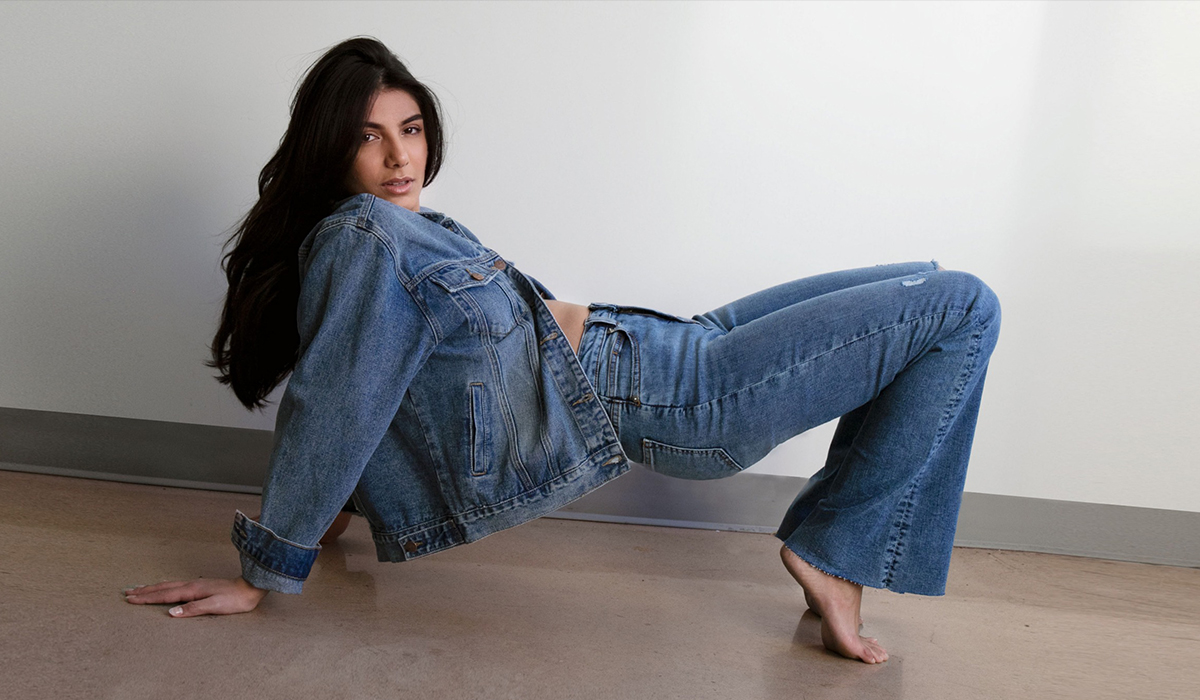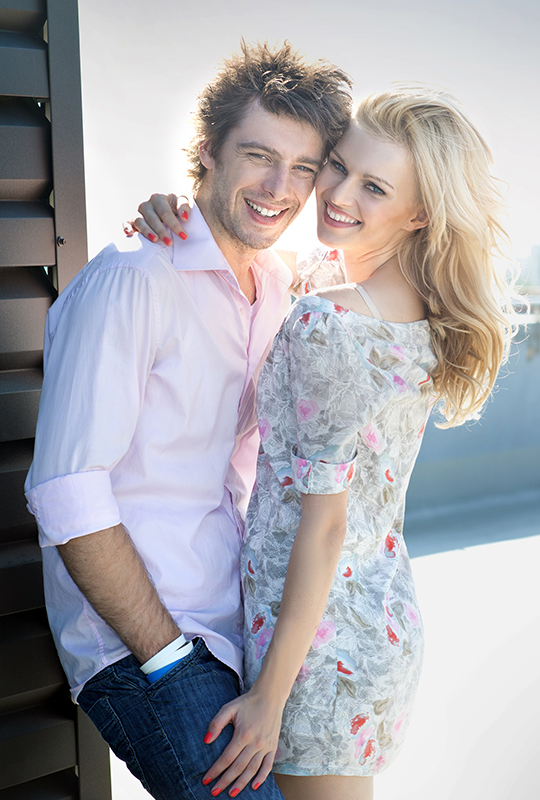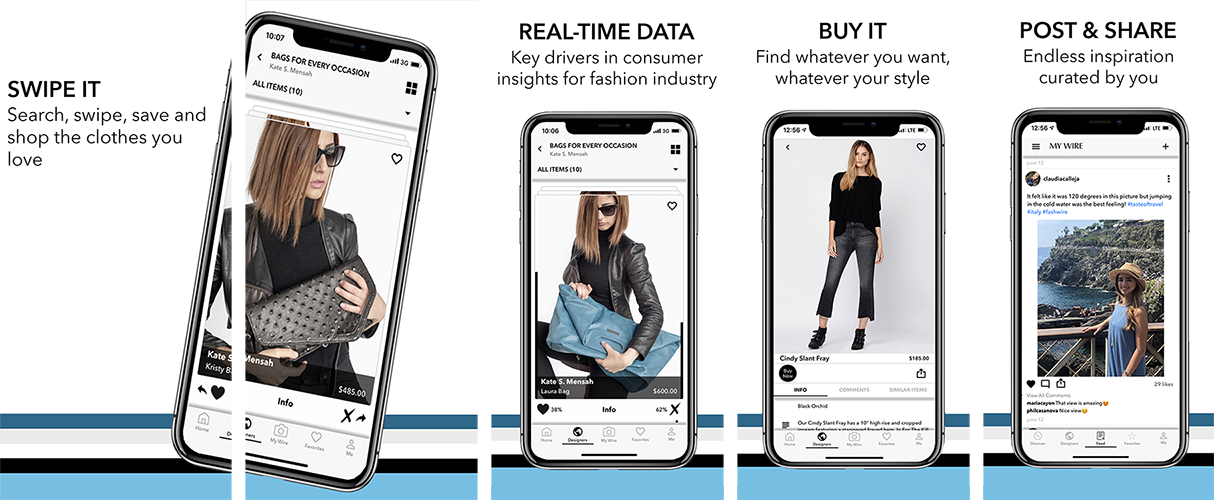
FASHTALKS WITH LOLA JEANS
Designer Interview
Apr 28, 2023 10:54 AM
What is your earliest design memory for your brand?
When I first started back in 2004, I had a line called Sixty-Nine Jeans. The first jeans I designed had a thong attached to the belt loop to the jeans. Kinda cheesy today but that’s almost 20 years ago.
Where do you find inspiration?
Travelling and online.
What sets your brand apart from the rest?
Lola Jeans offers something truly unique and that is denim that is sustainably made and affordable. Not only that, but we are committed to providing a selection of quality basics for women of all sizes. It is our goal to make high-quality denim accessible for everyone. Ethically made brands often come with a high price point and limited sizes. We are committed to changing that.
“Lola Jeans, denim that’s good for you and the planet.”
Do you have a favorite piece that you have designed?
Yes! Our now infamous Pull-On Jean.
What were some hurdles you had to overcome in your business?
COVID-19 and its effect on business.
What do you envision for the future of your brand?
Eventually, we would like every single piece of our collection to be sustainable. We would love to dive into natural dyes made from fruits and vegetables. We would love to work with fibers derived hemp or coconut.
As we grow, we continue to focus on progress and champion sustainability one step at a time. It is both challenging and exciting to search for ways to constantly improve. As we know more, we do better.
What is the one piece of advice you would give to a new designer?
Don’t outsource the groundwork, grab a duffle bag, hit the road, and knock at doors. No one will do it like you do it. Once you’ve built distribution and once your customers are enthusiastic about the product and the company, then you can assign people to take over with the same passion and enthusiasm as you.
How important is social media to your brand?
Very important! Given that we do not have the resources to advertise with major fashion outlets, we place high importance on organic growth on all social platforms. This is the first window to our brand’s DNA.
What is the most important thing you would like your brand to be recognized for?
Lola Jeans, denim that’s good for you and the planet.
“We are devoted to producing the highest quality denim with minimal environmental impact. From the finest raw materials to the innovative washing techniques, the denim we create is a testament of a higher standard you can expect from Lola Jeans.”
How would you define fashion?
Fashion is very subjective. I think that the millennials and Gen Z are no longer tied to the fashion trends set by the big fashion designers. They have audace and personality and dress according to their social affiliation. They want to make a bold statement of confidence.
What is your favorite fashion trend? Least favorite?
My favorite would have to be one that never dies: A blue jean with a white t-shirt. Least favorite? A fad, a jean torn from the pocket down to the thigh.
How important is sustainability to your brand?
Very important. It is our “Raison d’etre!”
Fast fashion has become the norm for our generation. We have become accustomed to having new styles readily available each season. Simply throwing out clothes that don’t last has become normalized. It doesn’t take an environmentalist to know that this is problematic. At Lola Jeans, we don’t make disposable jeans. We make jeans that last and that can be passed on to your sister, cousin, friend, or even donated, but never discarded like fast fashion shmattas.
We use sustainable, recycled materials and manufacturing practices, but more than that, we create jeans that are going to carry you from season to season. Moving away from fast fashion requires that brands be committed to creating incredibly high-quality products that consumers aren’t going to want to put in the trash at any point in the product lifecycle. It’s about creating quality apparel to last a lifetime.
How has the fashion industry changed since you first started out?
At the beginning, I wasn’t really thinking about my impact on the environment. I was running around with a duffle bag full of samples, trying to follow my dream and build a fashion brand from the ground up. Ignoring (or trying to ignore) just how polluting our industry is.
But denim is a dirty business.
A pair of jeans uses the same amount of water that one person drinks in 13 years, approximately 8000 liters. And it also contaminates it! So, how do we break this cycle and begin to repair the damage done? Providing a one-time gimmick like an “eco-jean” or a one-off capsule collection wasn’t good enough — we wanted to pursue sustainability in a sustainable way.
In 2020, we acted! We partnered with a production facility in Turkey that operates a state-of-the-art water filtration system and uses ozone & nebulization technology. The water filtration system recycles the wastewater, and the ozone & nebulization washing technology reduces our water consumption by 80%.
Today, environmental responsibility is at the forefront of Lola Jeans creative vision. We are combining ethics and quality to revolt against fast fashion and irresponsible production. We are devoted to producing the highest quality denim with minimal environmental impact. From the finest raw materials to the innovative washing techniques, the denim we create is a testament of a higher standard you can expect from Lola Jeans.
Many in the fashion industry have been making huge pivots in their business models. Many have turned away from the fast fashion trend. Many have been focusing on fashion that also makes a social impact. Many have turned to sustainable and ethical sourcing. Many have turned to hi tech manufacturing. Many have turned to subscription models.
What can consumers expect to see next from your brand?
Even more transparency. Eventually, we will share a full and clear picture of our supply chain. From where the cotton was grown, to where it was woven, to where and how our products were manufactured and a detail all our costs to bring the product to market.
If you could go back and tell yourself one thing before beginning your career, what would it be?
Always trust your gut!




